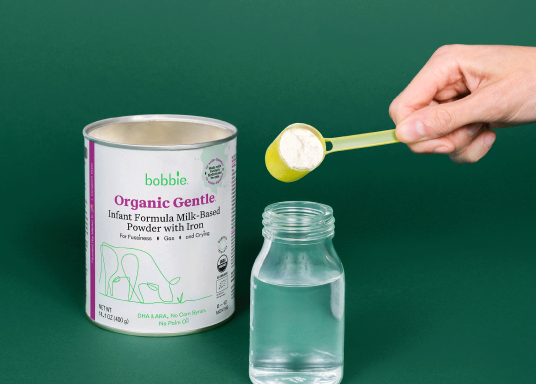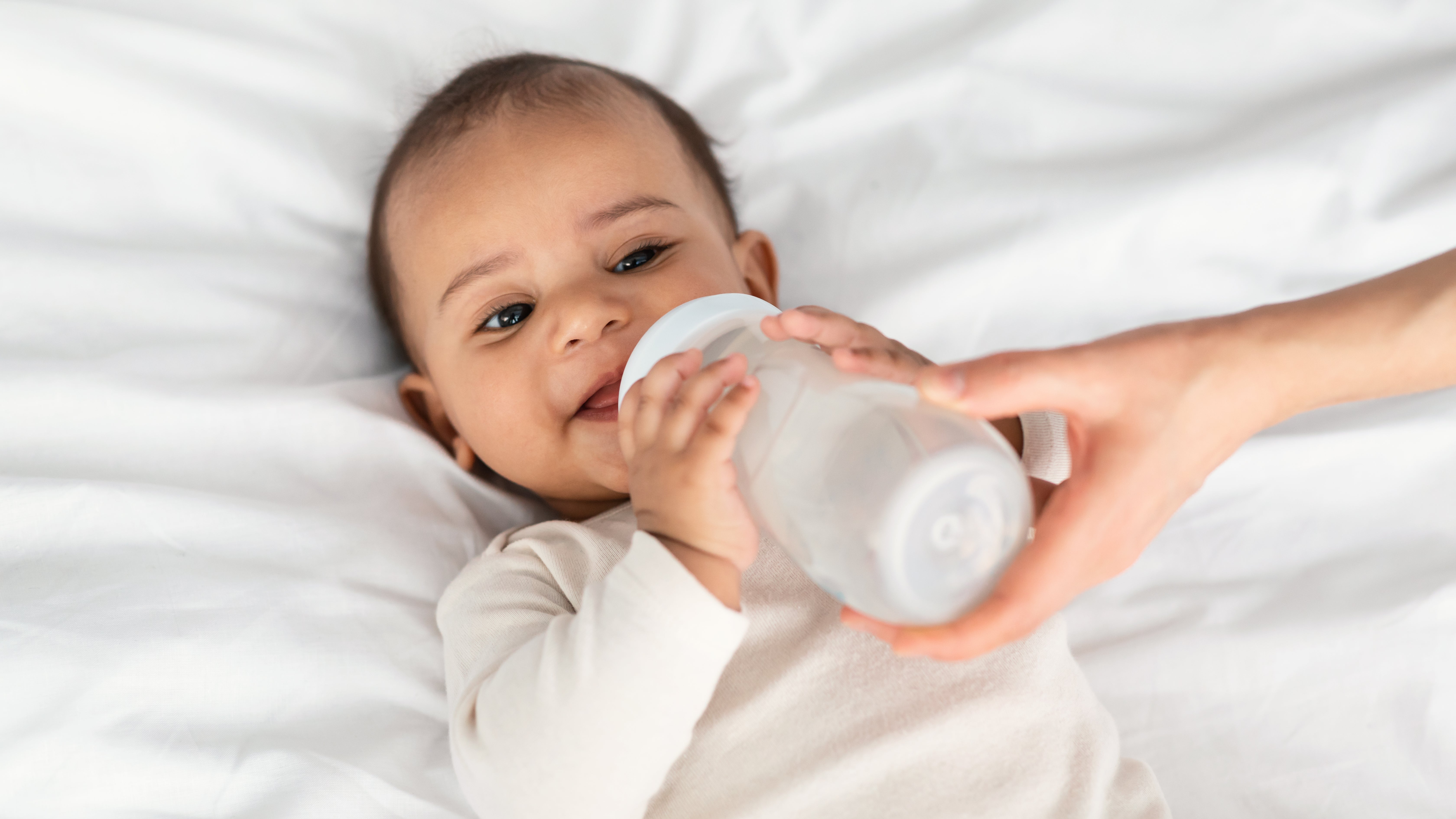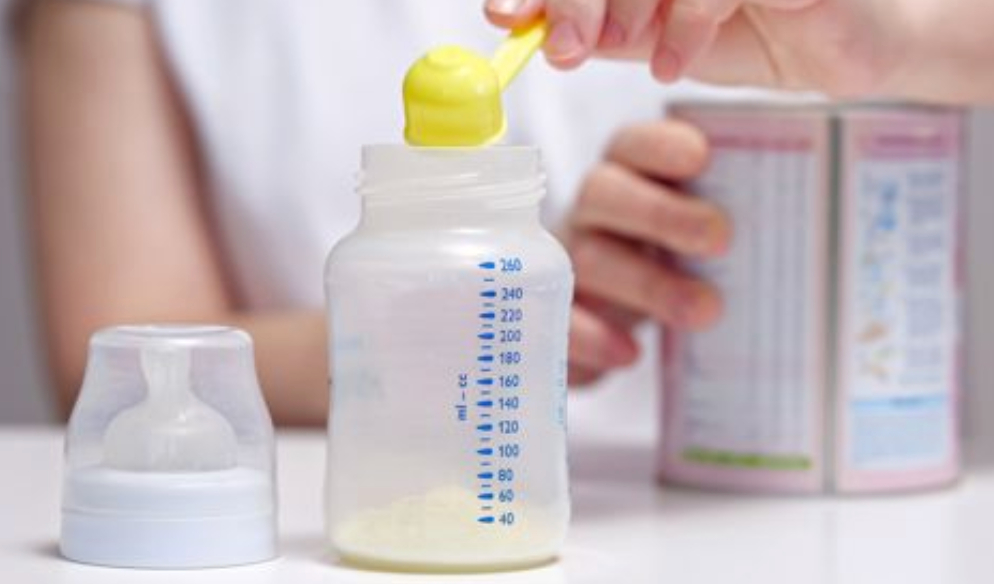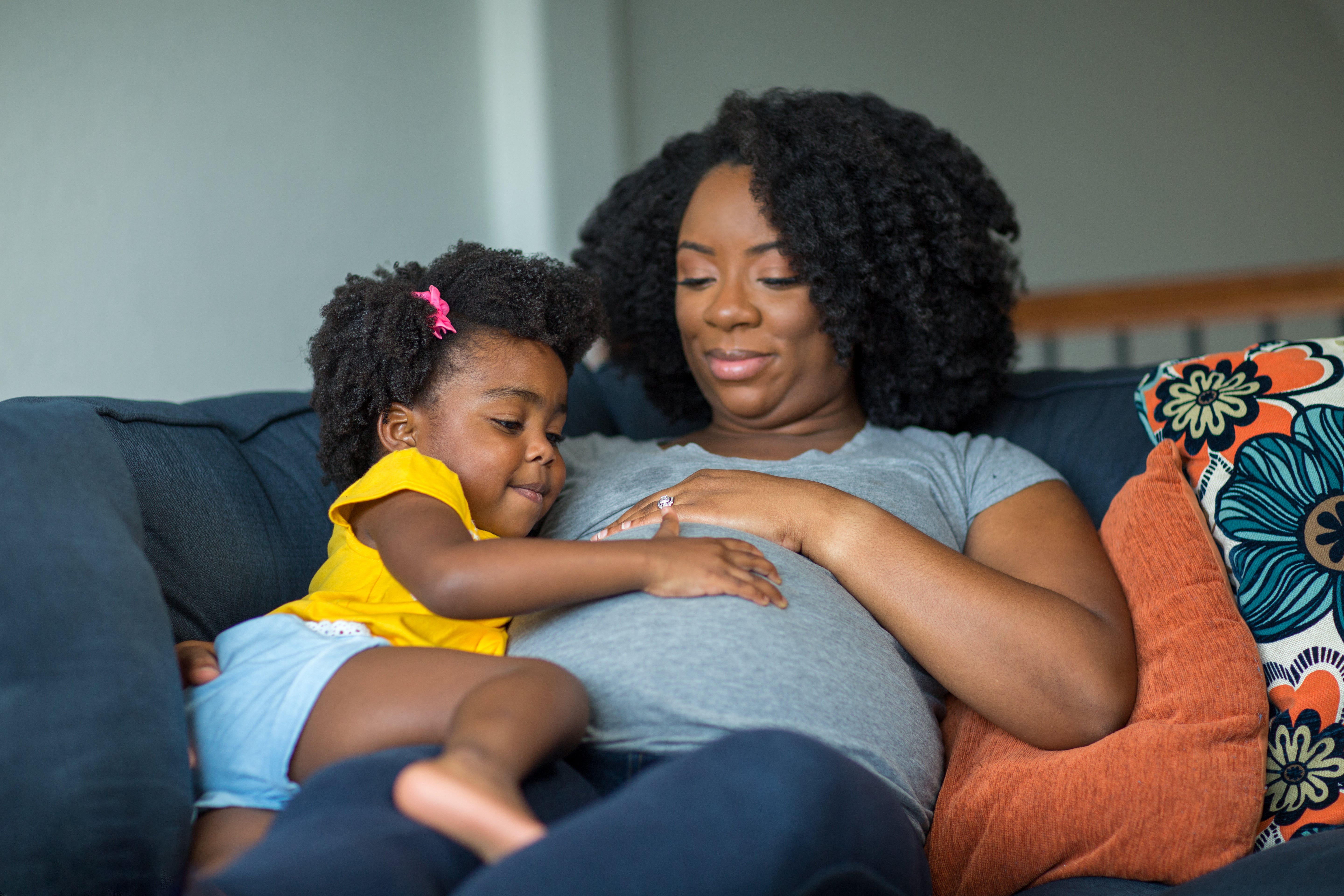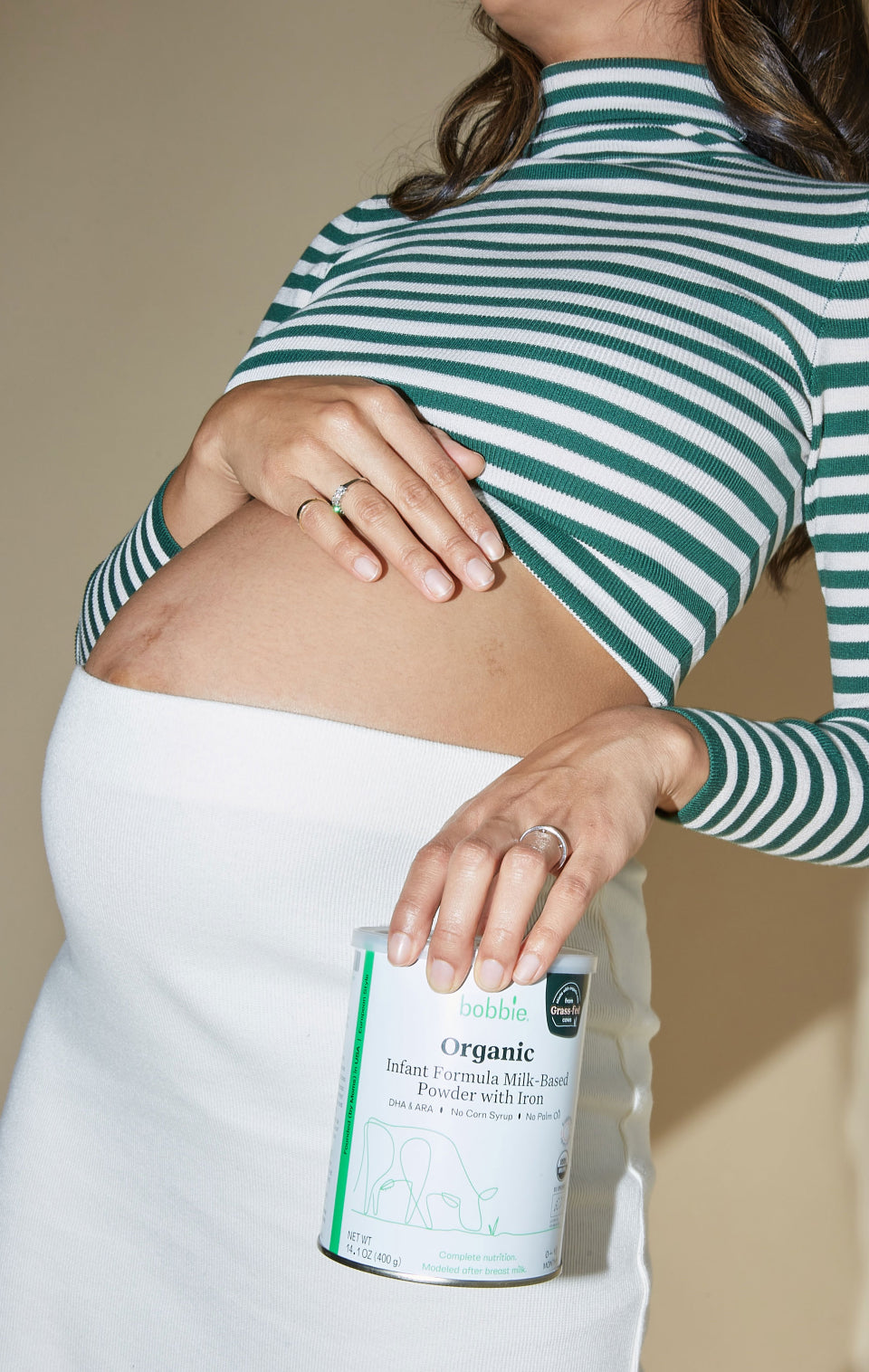Published May 8, 2025
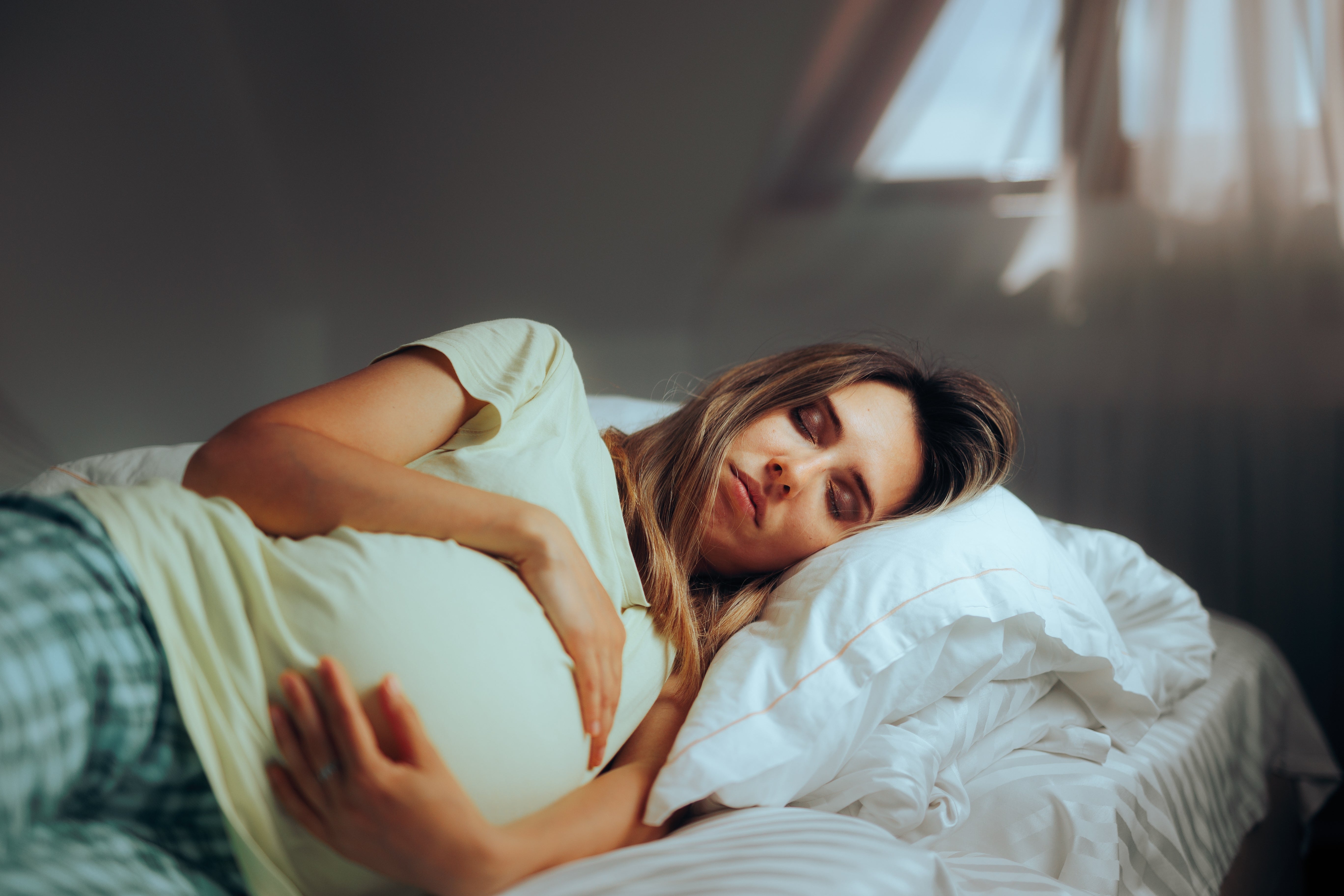
The Best Sleeping Positions for Hip Pain While Pregnant: Find Comfort and Rest Better
During pregnancy, persistent hip pain can turn bedtime into somewhat of a nightmare. Many expectant mothers discover that sore hips, an aching pelvis or sudden sharp pain quickly add up to disrupted or poor-quality sleep. This can come as an unwelcome surprise, especially for those who thought the “no sleep” phase of motherhood wouldn’t begin until after their baby’s arrival!
Thankfully, the right sleeping position can be a much-needed form of relief.
In this guide, we’ll fill you in on why pregnancy hip pain is so common and suggest some of the best sleeping positions for hip pain while pregnant. We’ll also touch on extra support options — from pregnancy pillows to physical therapy — that can help you reclaim the deep sleep you need.
Why Pregnancy Hip Pain Keeps You Up at Night
Pregnancy symptoms can run the gamut from aching head to swollen feet — with aching hips often making an appearance. Some expectant mothers notice a mild nagging discomfort in their hips when they lie down at night, while others are kept awake by a more persistent pain.
There are several reasons your hips might ache during pregnancy — and it’s often the combination of factors that leads to discomfort right when you want to have a rest:
-
Hormonal changes: Early in pregnancy, rising progesterone and relaxin soften ligaments and widen pelvic joints, creating less stability around your hips.
-
Growing baby bump: As your baby grows, that extra mass puts an increasingly heavy load on different muscles and joints throughout your hips, pelvis and lower back.
Alignment shifts: As your belly grows, your center of gravity shifts forward, typically deepening the curve in your lower back and tipping your pelvis, which kicks your spinal alignment off-balance and puts extra strain on the hip joints. -
Sleep positioning issues: A saggy mattress or awkward curl might pinch nerves like the sciatic nerve or aggravate tight muscles, leaving you achy in the morning.
-
Baby’s head position: In the third trimester, as your baby settles head-down in your pelvis, the bowling-ball weight of their heavy head presses directly on your hip joints when you lie on your side.
Left unchecked, these factors combine into a loop of pelvic pain, interrupted sleep and daytime crankiness.


Your go-to resource for all things new baby.
Sign up to get the scoop on feeding, sleep, poop, and so much more.
By singing up for email, you are to receive marketing emails from Bobbie and can manage your email preferences or unsubscribe at anytime
Best Sleeping Positions for Hip Pain Relief During Pregnancy
Here are some of the best sleep positions to try if you’re looking to alleviate hip pain at night:
1. Lying on Your Left Side
Once your bump makes back- or belly-sleeping uncomfortable, a side-lying position is the way to go. Resting on your left side is best because this takes pressure off your body’s largest vein below the heart: the inferior vena cava, which runs along the right side of your spine. So, sleeping on the left optimizes blood flow to your heart, kidneys and baby — all while easing pressure on your liver and helping to reduce leg swelling.
But if your left hip needs a break, rolling to the right side is still safe. Switching sides a few times throughout the night can help keep your circulation flowing and ward off stiffness or tingling.
2. Side-Sleeping With a Pillow Between Your Knees
To make side-sleeping even dreamier, slide a medium-firm pillow or slim pregnancy pillow between your knees. This keeps your thighs in alignment and your pelvis neutral, which stops your top leg from rolling forward and twisting your hip joint. No judgment if you want to keep this cozy sleep habit after pregnancy!
3. Relaxing into a Gentle Side Curl
Lie on your side with your knees softly drawn toward your chest, with your body in a loose comma shape rather than a tight ball. This can help soften the exaggerated arch in your lower back, open your sit-bones and take pressure off sore hips.
4. Use a Pregnancy Pillow
If one pillow feels flimsy, graduate to a C- or U-shaped pregnancy pillow. These full-body pillows are designed to support your baby bump, cradle your back and fill the knee gap, all in one squishy, adjustable swoop. Having this continuous contact is not only super comfy; it distributes your weight, stabilizes the pelvic floor and helps relieve lower back pain that can result from nighttime hip torque.
5. Elevate Your Legs With a Wedge
Try popping a small wedge pillow or folded blanket under both calves or your top thigh. This will lift your legs just enough to shift the angles of your hips, easing compression on your ball-and-socket joint and hip cartilage. Plus, this can help with drainage and circulation to alleviate leg swelling.
6. Sleeping on a Firm, Supportive Mattress
If your mattress has seen better days, you’ll feel it more than ever during pregnancy. While you don’t necessarily need to run out and buy a new mattress (you already have baby crib mattresses to worry about!), you may want to add a firm topper. A supportive base will help your hips stay level, preventing uncomfortable arching in your spine.
More Ways to Soothe Nighttime Pregnancy Hip Pain
Good sleep positions matter, but you can also try a mix of hip-friendly habits throughout the day to set yourself up for a successful night’s sleep.
Just be sure to check in with your health care provider before pursuing additional interventions or specialists. If your hip pain shoots down one leg, causes sudden instability, comes with serious swelling or involves unrelenting sharp pain, definitely give your provider a call. These can sometimes signal different issues, like pelvic girdle pain or a sciatic nerve flare-up, that need different attention. The earlier your care team can assess what’s happening, the sooner they can help find a solution.
Otherwise, here are some ideas to look into:
-
Stretching before bed: Spending five minutes on gentle exercise stretches like cat-cow, seated hip circles or butterfly position can help your hip area immensely.
-
Hydration: During pregnancy, it’s essential to keep your water intake levels up — not just for your growing baby, but to help prevent muscle soreness and tightness.
-
Screen-free bedtime habits: If you already struggle to sleep, all that blue light from your phone or TV will only make it harder to reach cloud nine. An hour before bedtime, step away from the screens and pick up a book instead. You might get drowsy before you know it.
-
Heat or cold therapy: Apply a low-heat pad to relax tense hip muscles or an ice pack to soothe any pain, or alternate for a mix of relaxation and pain relief.
-
Prenatal massage: A certified massage therapist can gently work all the right places, like deep gluteal trigger points that may be contributing to your hip pain.
-
DIY massage: At home, it may help to roll a tennis ball against the wall with your hip as a quick and easy massage.
-
Physical therapy: A pregnancy-savvy physical therapist can guide you to improvements in your core and pelvic floor activation. They may also suggest taping or bracing for stubborn pelvic girdle pain.
-
Chiropractic care: Certified chiropractors use gentle adjustments to realign the pelvis and reduce nerve irritation, which some pregnant women find helpful.
Need help remembering to hydrate, stretch or avoid late-night screen time? Try one of the best apps for new and expecting moms for friendly reminders.
Pregnancy Hip Pain FAQs
Let’s get into some of the most frequently asked questions that expectant moms might have on the topic of hip-happy sleeping positions:
Can sleeping on my back cause hip pain during pregnancy?
Unfortunately, it can. Past mid-pregnancy, your uterus puts pressure on large vessels in your body when you lie on your back, limiting circulation and stressing out your hip area. Doctors typically recommend sleeping on the left side during pregnancy.
What type of pregnancy pillow is best for hip pain relief?
U-shaped models are designed to offer full-body support, but a single pillow or a few strategically placed cushions can get the job done.
How often should I change sleeping positions?
Shift every two or three hours — or when the aches and tingling kick in — to improve your circulation and avoid over-stressing the same spots.
Are there stretches I should avoid before bed?
Skip any deep backbends or weight-bearing hip openers like frog pose, deep lizard lunge or full pigeon pose.
Can dehydration contribute to hip pain while sleeping?
Absolutely; tight, dehydrated muscles cramp more easily. Aim for at least eight glasses of water a day and reach for mineral-rich snacks to support better electrolyte balance.
Can swimming or prenatal water exercises help?
Yes! Water supports your body weight, taking pressure off your hips and pelvis while still letting you activate core and hip-stabilizing muscles. A dip in the pool can be a wonderful low-impact way to stay fit throughout pregnancy.
Is it normal for hip pain to worsen in the third trimester?
It is. Your baby is at their heaviest and your ligaments are at their loosest — it’s a recipe for discomfort. But if you prioritize good posture, supportive sleeping positions and time for rest, you’ll get at least some sleep throughout those tough final weeks.
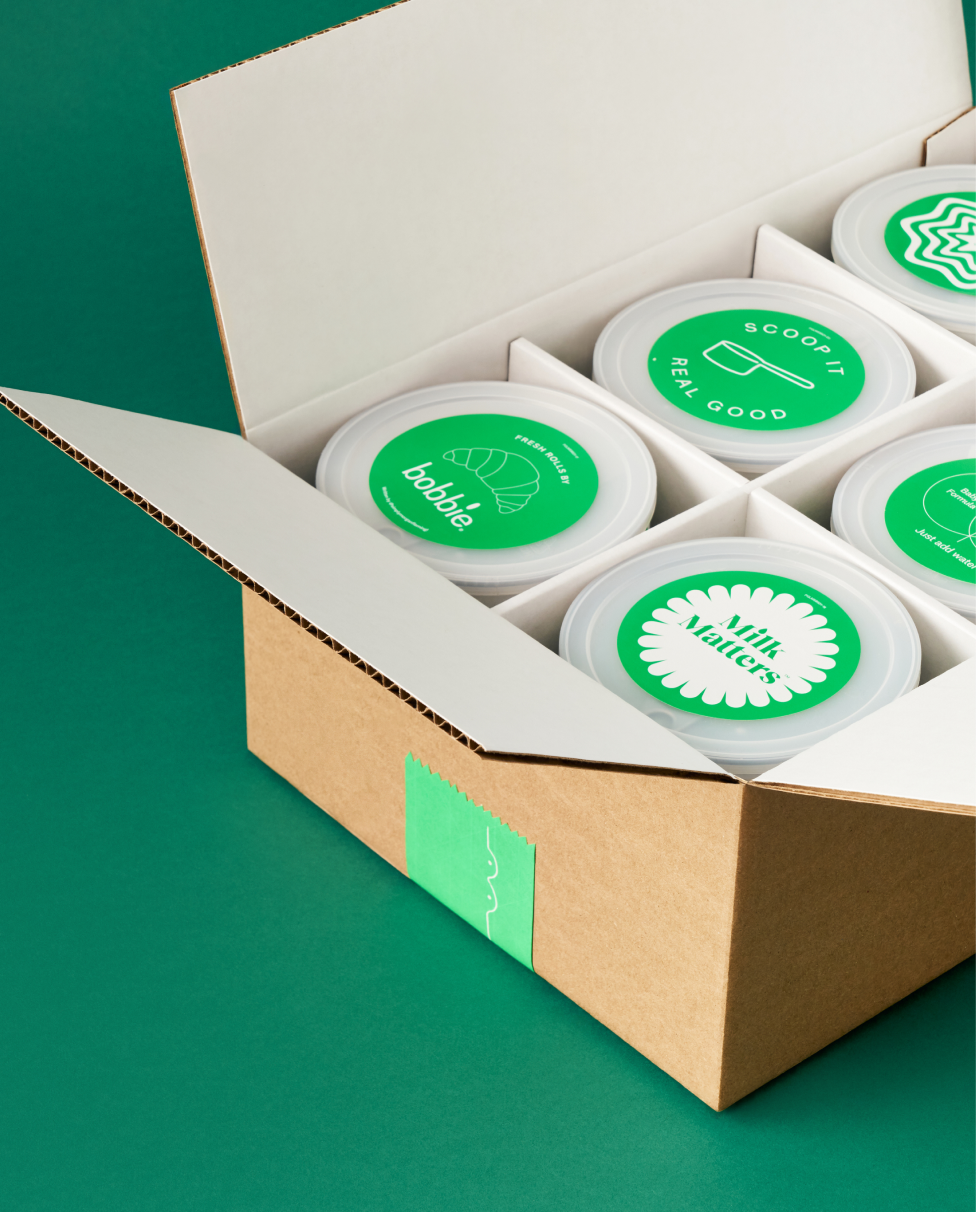
Shop Bobbie Organic Infant Formula
Bobbie Organic Infant Formula is a USDA Organic, EU-style infant formula that meets all FDA requirements. It is a complete nutrition milk-based powder modeled after breast milk and is easy on tummies. It is non-GMO and doesn't have corn syrup, palm oil, or maltodextrin. Shop Bobbie today!

Sleep Better, Feel Better: Find What Works for You
Experiment with different pillow positions and sleep solutions to see what helps you catch forty winks quicker. Even seemingly small tweaks tonight can mean better sleep in the weeks ahead.
And, when you’re feeling rested enough to think about the next stage, shop Bobbie for organic, thoughtfully crafted infant formula.
The content on this site is for informational purposes only and not intended to be a substitute for professional medical advice, diagnosis or treatment. Discuss any health or feeding concerns with your infant’s pediatrician. Never disregard professional medical advice or delay it based on the content on this page.







